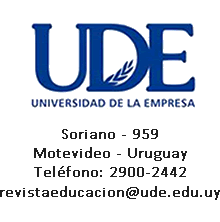Educação ambiental
a sustentabilidade ambiental na pespectiva do pensamento complexo
DOI:
https://doi.org/10.48163/rseus.2025.131107-132Palavras-chave:
Educação Ambiental, Sustentabilidade, ComplexidadeResumo
Este estudo de revisão integrativa tem como objetivo discutir as contribuições da educação ambiental, enquanto política pública, para a promoção da sustentabilidade ambiental a partir da perspectiva do pensamento complexo. A pesquisa explora as contribuições de pensadores como Edgar Morin, Moacir Gadotti, Enrique Leff e Leonardo Boff, que desempenham um papel fundamental no avanço da educação voltada para a sustentabilidade. A abordagem da complexidade, da interdisciplinaridade e da formação crítica é considerada essencial para enfrentar os desafios ambientais contemporâneos e promover práticas sustentáveis na sociedade. A educação ambiental é aqui entendida como um conjunto de normas, saberes e práticas compartilhadas que fomentam a cidadania ambiental, promovendo a compreensão dos desafíos ambientais incentivando a adoção de comportamentos sustentáveis. A teoria da complexidade é adotada como uma lente analítica para a compreensão aprofundada da sustentabilidade, uma vez que reconhece as interconexões e a dinâmica entre os sistemas naturais e sociais, além dos aspectos econômicos e ambientais. Este estudo discute a Teoria da Complexidade no contexto da sustentabilidade, refletindo sobre os desafios que ameaçam a continuidade da vida no planeta. Ao proporcionar uma visão sistêmica e ética, a complexidade revela-se uma ferramenta teórica valiosa para a compreensão das inter-relações dos problemas ambientais. Dessa forma, a educação ambiental, ancorada na complexidade, facilita uma visão crítica da sustentabilidade e incentiva reflexões no contexto educacional, contribuindo para a formação de cidadãos sensibilizados e comprometidos omprometidos com práticas sustentáveis.
Downloads
Publicado
Versões
- 2025-12-15 (2)
- 2025-05-07 (1)
Como Citar
Edição
Seção
Licença
Copyright (c) 2025 Alisson Martins Duarte, Lucia Ceccato de Lima

Este trabalho está licenciado sob uma licença Creative Commons Attribution 4.0 International License.
Política para revistas de acceso abierto
Los autores/as que publiquen en esta revista aceptan las siguientes condiciones:
a. Los autores/as conservan los derechos de autor y ceden a la revista el derecho de la primera publicación, con el trabajo registrado con la licencia de atribución de Creative Commons (CC-BY), que permite a terceros utilizar lo publicado siempre que mencionen la autoría del trabajo y a la primera publicación en esta revista.
b. Los autores/as pueden realizar otros acuerdos contractuales independientes y adicionales para la distribución no exclusiva de la versión del artículo publicado en esta revista (p. ej., incluirlo en un repositorio institucional o publicarlo en un libro) siempre que indiquen claramente que el trabajo se publicó por primera vez en esta revista.






















